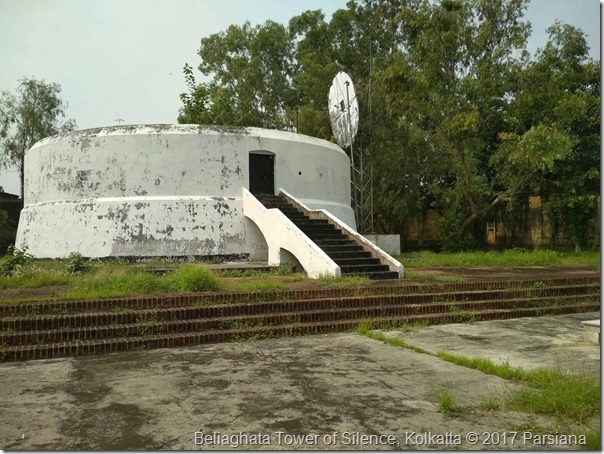KOLKATA: The cremation of a Parsi against his family’s wishes earlier this month has created a furore within the community and focused attention on the practices and rituals that it has zealously protected for centuries.
Article by Jayanta Gupta | Times of India
Fifty-five-year-old Maneksha Bhesania passed away on October 4 and his ageing mother and other family members wanted the last rites to be held at the Dakhma or the Tower of Silence in Beliaghata. But he was ultimately cremated at Keoratala, as pall bearers could not be arranged within 24 hours, the stipulated time for completion of last rites in accordance with Zoroastrian customs.
The news of this cremation triggered a furore in the community, forcing the Calcutta Zoroastrian Community’s Religious and Charity Fund (CZCRCF) to issue a statement pleading helplessness for the non-availability of pall bearers. “There was a death in the community recently where the family desired the traditional Dakhma form of disposal. This could not be arranged as we had insufficient pall bearers…. The family desired tradition to be maintained, were denied it and had to settle for cremation, which we deeply and sincerely regret. There were subsequent occasions when we were fortunate to have volunteers but it is not an unlikely scenario that we will not always have sufficient pall bearers. To the extent possible, we shall see that the wishes of the deceased’s family members are fulfilled. But, where it becomes impossible, everyone will have to please understand,” the notice stated. Only Parsi males can be pall bearers.
The number of Zoroastrians, once a thriving community, has dwindled in Kolkata to less than 500. The problem has been further accentuated by a greying population though community members say they continue to zealously guard old practices.
Non-Parsis are allowed into the Ravangah (place for performing last rites before the body is taken to the Tower of Silence) but, once the body is washed, only a Parsi is allowed to look at the face.
The CZCRCF notice has sparked dismay in the community, with Meher H Mehta, a former senior Grindlays Bank official, writing: “Appears to me the weakest of reasons that you could attribute. I do not believe that the cost involved could have been a factor in not recruiting needy Parsis from elsewhere. Ours being an ageing community in Kolkata, the anticipation should have been all the more alert and urgent. This is not a matter that can be explained or wished away by a mere expression of sincere regret.” TOI has copies of both the CZCRCF notice and Mehta’s response.
Mehta also wrote to other senior members of the community: “My understanding is that this has created unrest within the community. To my mind what has happened is an outrage. Try telling it otherwise to the poor aged Parsi mother who I believe is crying her heart out for the son who was denied his Zoroastrian funeral rites and prayers.”
A senior office-bearer of the Parsi Zorastrian Association (PZA) of Calcutta told TOI that some pall bearers were employed by the trust and others were volunteers. “There have been cases where Parsi Zoroastrians have been cremated but that was according to the wishes of the family. Ideally, the trust should have engaged pall bearers from elsewhere. There is no paucity of fund,” he said.


